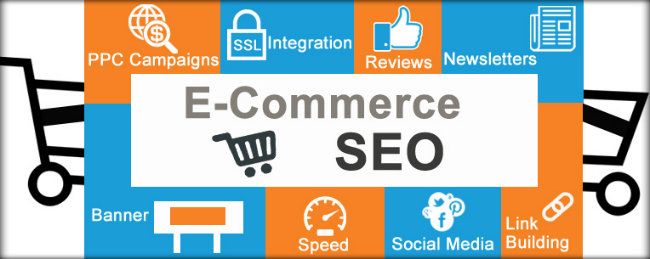Traditionally, digital marketing agencies used to struggle when it came to optimizing an E-commerce platform, often overstepping the grey area and taking up black-hat SEO practices. Needless to say, this didn’t always pan out the right way. In fact, many online selling businesses got penalized by Google that eventually killed their existence—given this search engine is the number one source of traffic for many.
(Did you know 43 percent of e-commerce traffic comes from organic Google search and 26 percent comes from Adwords?)
However, this was the case of Pre-Content Marketing Era when spray-and-pray techniques were still in prominence. With now the entire landscape of marketing revolving around contents, the smart e-commerce businesses have better and legitimate ways to top Google and other search engines.
If you own an e-commerce business, there’s a new (and simple) method on the block that you can swiftly execute in your on-page optimization efforts.
Add Content on Product Category Pages
Indeed the products (image, description) must hold the centre stage on your e-commerce website, given that’s what the incoming traffic wants. However, you can infuse the right amount of texts on the category pages to help the search spiders better understand the contents of individual webpages. The more quality content the spider crawls, better it is for your ranking on the SERP.
You can use your inner creative genius to effectively pull this technique through different ways. You have a lot of choices— include the content at the top of the page, at the very bottom, distribute it in small chunks through the page, and sensibly use the internal link building approach to strike a fine balance between optimization for Google and the users.
Mistakes Big Brands Are Making (But You Shouldn’t)
While as simple and rewarding as this entire technique looks, there is a big room to make errors. So you must tread water carefully if you’re doing it all without any affordable SEO agency. Here are few of the mistakes that even the top e-commerce businesses often make:
#1 Including Long-Form Contents
Long-form contents do great. But that theory isn’t applicable here. Including never-ending chunk of texts can easily take away the spotlight from the products. And it’s not something you want. Words count anywhere between 300 and 400 is ideally safe.
#2 Stuffing it with keywords
Keyword stuffing is a thing of a past. With Google enhancing its algorithm game, using semantic indexes and relying on machine learning program, a keyword-rich content doesn’t help these days. When you overdo it, it might qualify as spam. So don’t stuff keywords unnecessarily.
#3 Thinking visitors won’t read it
Yes, it’s for the search engines. But don’t assume visitors won’t read the content. Because, when scrolling through the page, they will! And if they don’t like what you’re saying, there’s a very big chance they will not buy from you. After all, online, it usually takes a person 3 seconds to form a perception about the brand. And if the perception isn’t good, they might not engage with the business. So create high-quality, engaging and striking contents.
#4 Large Font Size
This might look like a small mistake, but it isn’t. If the texts are too large in size, they can easily take away the attention from the products. Similarly, if they are small, they could be equally distractive. So find the right font size-prioritize the mobile users atop.
#5 Using the technique on every category page
You don’t have to include content on every product category page. Just produce contents for categories who you want to rank higher on SERP for selected keywords. For others, simply use a smart internal link-building mechanism to spread the SEO juice and get them crawled regularly.
These are 5 mistakes even big e-commerce brands make when including contents on their product category pages—mistakes that you shouldn’t make.
A lot will depend on the kind of copywriter you have by your side or on your own writing skills. To get things perfectly and professionally, it’s always a good idea to hire a good digital marketing company.




